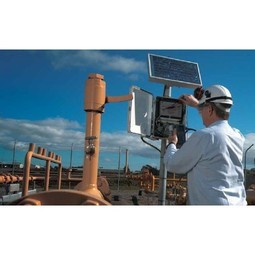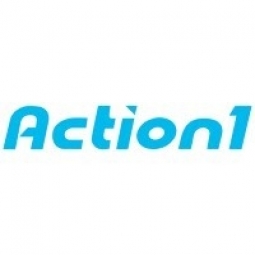技术
- 平台即服务 (PaaS) - 应用开发平台
- 平台即服务 (PaaS) - 设备管理平台
适用行业
- 设备与机械
- 公用事业
适用功能
- 维护
用例
- 施工管理
- 时间敏感网络
关于客户
Razzoo's Cajun Cafe 是一家连锁餐厅,热情地创造大胆、美味、卡津风格的菜肴,将新奥尔良和法国区的所有风味、乐趣和节日带入生活。 Razzoo's 于 1991 年在达拉斯成立,在德克萨斯州、俄克拉何马州和北卡罗来纳州经营着 22 家餐厅。该餐厅的 IT 基础设施包括一个数据中心和分布在中央办公室和远程位置的 200 个端点。该公司是一家私营公司,总部位于美国德克萨斯州艾迪生。
挑战
Razzoo 的 Cajun Cafe 是一家连锁餐厅,在德克萨斯州、俄克拉何马州和北卡罗来纳州设有 22 家分店,在管理 IT 运营方面面临着重大挑战。该餐厅的 IT 基础设施包括一个数据中心和分布在中央办公室和远程位置的 200 个端点。该公司需要更好地了解和控制其企业端点,以确保其餐厅的成功。现有系统涉及多个应用程序和实用程序,这使得管理变得困难。该公司需要一种安全、可靠的工具,可以提供对远程位置的访问、为餐厅提供支持并满足合规标准。
解决方案
Razzoo 的 Cajun Cafe 采用了 Action1,这是一种经济高效的一体化平台,可以满足他们所有的远程 IT 管理需求。该平台使团队能够了解所有公司端点,包括他们以前不知道的一些设备。它还使他们能够轻松控制和管理端点。他们可以远程访问用户的计算机,使所有公司端点保持最新状态,获取有关软件和硬件资产的详细报告,部署软件并运行 PowerShell 脚本 - 所有这些都只需一个工具即可完成。 Action1 的内置远程桌面显着减少了访问用户计算机所需的时间。该平台还允许团队批量管理端点,按计划在所有端点或特定端点组上运行命令和 PowerShell 脚本,并设置策略以在满足某些条件时自动执行这些操作。
运营影响
数量效益

Case Study missing?
Start adding your own!
Register with your work email and create a new case study profile for your business.
相关案例.

Case Study
Smart Water Filtration Systems
Before working with Ayla Networks, Ozner was already using cloud connectivity to identify and solve water-filtration system malfunctions as well as to monitor filter cartridges for replacements.But, in June 2015, Ozner executives talked with Ayla about how the company might further improve its water systems with IoT technology. They liked what they heard from Ayla, but the executives needed to be sure that Ayla’s Agile IoT Platform provided the security and reliability Ozner required.

Case Study
IoT enabled Fleet Management with MindSphere
In view of growing competition, Gämmerler had a strong need to remain competitive via process optimization, reliability and gentle handling of printed products, even at highest press speeds. In addition, a digitalization initiative also included developing a key differentiation via data-driven services offers.

Case Study
IoT Solutions for Smart City | Internet of Things Case Study
There were several challenges faced: It is challenging to build an appliance that can withstand a wide range of voltage fluctuations from as low at 90v to as high as 320v. Since the device would be installed in remote locations, its resilience was of paramount importance. The device would have to deal with poor network coverage and have the ability to store and re-transmit data if networks were not available, which is often the case in rural India. The device could store up to 30 days of data.

Case Study
Predictive Maintenance for Industrial Chillers
For global leaders in the industrial chiller manufacturing, reliability of the entire production process is of the utmost importance. Chillers are refrigeration systems that produce ice water to provide cooling for a process or industrial application. One of those leaders sought a way to respond to asset performance issues, even before they occur. The intelligence to guarantee maximum reliability of cooling devices is embedded (pre-alarming). A pre-alarming phase means that the cooling device still works, but symptoms may appear, telling manufacturers that a failure is likely to occur in the near future. Chillers who are not internet connected at that moment, provide little insight in this pre-alarming phase.

Case Study
Automation of the Oguz-Gabala-Baku water pipeline, Azerbaijan
The Oguz-Gabala-Baku water pipeline project dates back to plans from the 1970’s. Baku’s growth was historically driven by the booming oil industry and required the import of drinking water from outside of the city. Before the construction of the pipeline, some 60 percent of the city’s households received water for only a few hours daily. After completion of the project, 75 percent of the two million Baku residents are now served around the clock with potable water, based on World Health Organization (WHO) standards. The 262-kilometer pipeline requires no pumping station, but uses the altitude differences between the Caucasian mountains and the capital to supply 432,000 m³/d to the Ceyranbatan water reservoir. To the people of Baku, the pipeline is “the most important project not only in 2010, but of the last 20 years.”

Case Study
GPRS Mobile Network for Smart Metering
Around the world, the electricity supply industry is turning to ‘smart’ meters to lower costs, reduce emissions and improve the management of customer supplies. Smart meters collect detailed consumption information and using this feedback consumers can better understand their energy usage which in turn enables them to modify their consumption to save money and help to cut carbon emissions. A smart meter can be defined in many ways, but generally includes an element of two-way communication between the household meter and the utility provider to efficiently collect detailed energy usage data. Some implementations include consumer feedback beyond the energy bill to include online web data, SMS text messages or an information display in consumers’ premises. Providing a cost-effective, reliable communications mechanism is one of the most challenging aspects of a smart meter implementation. In New Zealand, the utilities have embraced smart metering and designed cost effective ways for it to be implemented. The New Zealand government has encouraged such a move to smart metering by ensuring the energy legislation is consistent with the delivery of benefits to the consumer while allowing innovation in this area. On the ground, AMS is a leader in the deployment of smart metering and associated services. Several of New Zealand’s energy retailers were looking for smart metering services for their residential and small business customers which will eventually account for over 500,000 meters when the multi-year national deployment program is concluded. To respond to these requirements, AMS needed to put together a solution that included data communications between each meter and the central data collection point and the solution proposed by Vodafone satisfied that requirement.







